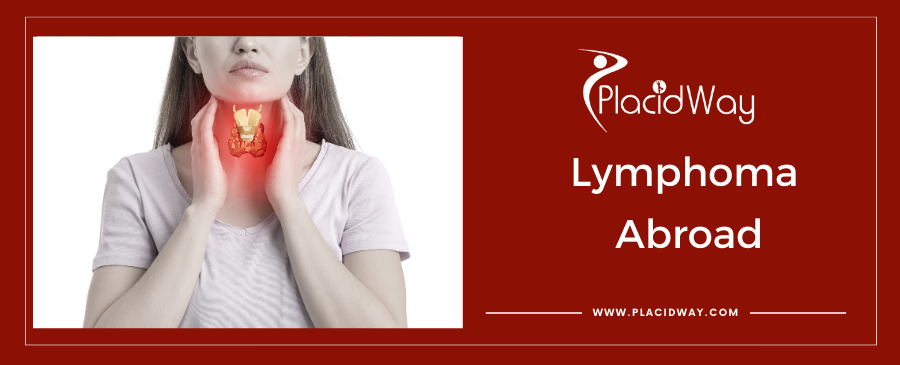
Navigating Lymphoma Treatment Abroad: Your Guide to Global Care & Hope
Facing a lymphoma diagnosis can be overwhelming, bringing with it questions about the best treatment paths, potential costs, and access to leading medical expertise. For many, the answer lies beyond their borders. Medical tourism for lymphoma treatment has emerged as a vital option, offering access to cutting-edge therapies, renowned specialists, and often more affordable care in countries across the globe.
Lymphoma is a type of cancer that begins in infection-fighting cells of the immune system called lymphocytes. These cells are in the lymph nodes, spleen, thymus, bone marrow, and other parts of the body. When you receive a lymphoma diagnosis, it’s natural to feel concerned. The good news is that advancements in medical science have led to highly effective treatments, and many types of lymphoma are curable or manageable for long periods. However, the availability, cost, and specific approaches to these treatments can vary significantly from one country to another.
This comprehensive guide is designed to empower you with the knowledge needed to explore your options for lymphoma treatment abroad. We’ll delve into the nuances of the disease, explore diverse treatment modalities, compare international costs, and answer crucial questions about traveling for medical care, ensuring you can make informed decisions about your health journey. Whether you're searching for "affordable lymphoma treatment," "best hospitals for cancer overseas," or simply "what are my options for lymphoma," this resource is for you.
What are the common symptoms of Lymphoma?
Recognizing the symptoms of lymphoma is crucial for early diagnosis and effective treatment. While these symptoms can often be attributed to less serious conditions, persistent or worsening signs warrant medical attention. Patients often search for "early signs of lymphoma" or "what does a lymphoma lump feel like."
Key symptoms include:
- Painless swelling of lymph nodes: This is the most common sign, often felt in the neck, armpit, or groin. These lumps can grow over time.
- Fever: Unexplained fevers that come and go.
- Drenching night sweats: Sweats so profuse they may soak through clothes or bedding.
- Unexplained weight loss: Losing more than 10% of your body weight over six months without trying.
- Persistent fatigue: Extreme tiredness that doesn't improve with rest.
- Itching: Generalized itching without a rash.
- Coughing or shortness of breath: If lymph nodes in the chest are affected.
- Abdominal pain or swelling: If the spleen or lymph nodes in the abdomen are enlarged.
It's important to remember that these symptoms can also be caused by other conditions. If you experience any of these persistently, consulting a doctor is essential for accurate diagnosis.
What factors contribute to the development of Lymphoma?
Understanding the "causes of lymphoma" or "what increases lymphoma risk" can help identify who might be more susceptible, though many people with these risk factors never develop the disease, and many without them do.
Risk factors for lymphoma include:
- Age: While lymphoma can occur at any age, the risk generally increases with age, particularly for non-Hodgkin lymphoma.
- Weakened Immune System: People with compromised immune systems, such as those with HIV/AIDS, autoimmune diseases, or organ transplant recipients on immunosuppressant drugs, have a higher risk.
- Infections: Certain viral and bacterial infections are linked to an increased risk of lymphoma. These include the Epstein-Barr virus (EBV), Helicobacter pylori (H. pylori) bacteria, hepatitis C virus, and human T-cell leukemia/lymphoma virus (HTLV-1).
- Exposure to Chemicals: Exposure to certain pesticides, herbicides, and solvents has been linked to an increased risk in some studies.
- Family History: Having a close relative with lymphoma slightly increases your risk.
- Obesity and Diet: Some research suggests a link between obesity and an increased risk of certain lymphomas, though more study is needed.
It's crucial to note that having a risk factor doesn't mean you will get lymphoma, and many people who get lymphoma have no known risk factors.
What treatment options are available for Lymphoma?
The "main treatments for lymphoma" are often a combination of approaches tailored to the specific type of lymphoma (Hodgkin or Non-Hodgkin), its stage, and the patient's overall health. Advanced medical centers globally offer a comprehensive range of options:
- Chemotherapy: This is a primary treatment, using drugs to kill cancer cells, often given intravenously or orally. Protocols like R-CHOP are standard.
- Radiation Therapy: High-energy rays are used to kill cancer cells and shrink tumors, typically focused on affected lymph nodes.
- Immunotherapy: These treatments harness the body's own immune system to fight cancer. Examples include checkpoint inhibitors and CAR T-cell therapy, a groundbreaking option for some refractory lymphomas.
- Targeted Therapy: Drugs that target specific weaknesses within cancer cells, such as Bruton's tyrosine kinase (BTK) inhibitors or proteasome inhibitors, often with fewer side effects than traditional chemotherapy.
- Stem Cell Transplantation (SCT): High-dose chemotherapy or radiation is followed by the infusion of healthy blood-forming stem cells. This can be autologous (using the patient's own cells) or allogeneic (using donor cells).
- Watchful Waiting: For very slow-growing lymphomas that aren't causing symptoms, doctors may recommend closely monitoring the condition before starting active treatment.
The choice of treatment is a complex decision made in consultation with a team of oncologists.
Who is an ideal candidate for Lymphoma treatment?
When considering "who is eligible for lymphoma treatment," it's less about whether you *need* treatment and more about *which* treatment is best suited for you. The suitability for certain intensive treatments is often a key factor for medical tourists.
- All diagnosed patients: Virtually everyone diagnosed with lymphoma is a candidate for some form of treatment, whether it's watchful waiting, chemotherapy, or more advanced therapies.
- For advanced therapies (e.g., CAR T-cell therapy, allogeneic SCT):
- Overall good health: Patients must be fit enough to withstand intensive treatments.
- Specific lymphoma type and stage: These therapies are often reserved for relapsed or refractory lymphomas, or certain aggressive types.
- Absence of severe co-morbidities: Significant heart, lung, or kidney problems might preclude certain aggressive treatments.
- For medical tourism: Patients seeking treatment abroad are often those who:
- Have limited access to specific treatments in their home country.
- Are seeking more affordable options.
- Are looking for second opinions from world-renowned specialists.
- Are interested in clinical trials for innovative therapies.
A thorough medical evaluation, including biopsies, imaging, and blood tests, will determine the most appropriate treatment plan.
What can I expect during my recovery from Lymphoma treatment?
Patients often inquire about "lymphoma treatment recovery time" or "life after chemotherapy for lymphoma." Recovery is a journey, not a single event, and can be different for everyone.
- Immediate Post-Treatment: Directly after a chemotherapy cycle or radiation, you might experience acute side effects like nausea, fatigue, mouth sores, and a weakened immune system. You'll need rest and supportive care.
- Short-Term Recovery (weeks to months): Energy levels gradually improve, and many acute side effects subside. Regular follow-up appointments, blood tests, and scans are essential to monitor for remission and manage lingering side effects.
- Long-Term Recovery (months to years): Full recovery can take time. Some patients experience long-term side effects such as chronic fatigue, nerve damage, or fertility issues. Psychological support is also crucial during this period.
- Post-Stem Cell Transplant: This is the most intensive recovery, often requiring isolation for several weeks due to extreme immune suppression. Full immune system recovery can take 6-12 months or even longer.
During recovery, maintaining a healthy lifestyle, following medical advice, and seeking emotional support are vital. Many international clinics offer robust post-treatment care plans, which can be an important consideration for medical tourists.
Are there risks or side effects associated with Lymphoma treatment?
Understanding "risks of lymphoma treatment" or "side effects of chemotherapy for lymphoma" is essential for informed consent and managing expectations. Each type of treatment comes with its own set of potential adverse effects.
- Chemotherapy: Common side effects include nausea, vomiting, hair loss, fatigue, mouth sores, diarrhea, constipation, and increased risk of infection due to lowered white blood cell counts. Long-term effects can include nerve damage (neuropathy), heart problems, kidney damage, and secondary cancers.
- Radiation Therapy: Side effects depend on the area treated but can include skin irritation, fatigue, hair loss in the treated area, and difficulty swallowing if the neck or chest is radiated. Long-term risks include tissue damage and secondary cancers.
- Immunotherapy: While often better tolerated than chemotherapy, immunotherapy can cause immune-related adverse events, where the immune system attacks healthy organs. CAR T-cell therapy can have severe neurological side effects and cytokine release syndrome.
- Targeted Therapy: Side effects are often more specific to the drug's mechanism but can include skin rashes, diarrhea, and fatigue.
- Stem Cell Transplant: This procedure has the most severe risks, including severe infections, graft-versus-host disease (GVHD) in allogeneic transplants, organ toxicity, and high mortality rates if complications arise.
Your medical team will discuss these risks extensively and implement strategies to manage and mitigate side effects.
How much does Lymphoma treatment cost globally?
The "cost of lymphoma treatment overseas" is a primary driver for medical tourism. Patients frequently search for "affordable cancer treatment abroad." Here's a general comparison (prices are estimates and can vary widely):
| Country | Chemotherapy (per cycle, basic) | Radiation Therapy (full course) | Stem Cell Transplant (Autologous) | CAR T-cell Therapy (estimated) |
|---|---|---|---|---|
| USA | $5,000 - $30,000+ | $30,000 - $100,000+ | $100,000 - $300,000+ | $400,000 - $700,000+ |
| Western Europe (e.g., Germany) | $3,000 - $15,000+ | $20,000 - $70,000+ | $80,000 - $250,000+ | $300,000 - $500,000+ |
| India | $500 - $3,000+ | $5,000 - $20,000+ | $20,000 - $60,000+ | $70,000 - $150,000+ (limited availability) |
| Turkey | $1,000 - $5,000+ | $8,000 - $30,000+ | $30,000 - $80,000+ | $100,000 - $200,000+ (limited availability) |
| Mexico | $1,000 - $5,000+ | $10,000 - $35,000+ | $40,000 - $90,000+ | N/A or very limited |
These figures are for the treatment itself and generally do not include diagnostic tests, consultation fees, flights, accommodation, or post-treatment care, all of which add to the total cost. However, even with these additions, the overall cost can be substantially lower than in high-cost countries.
Why should I consider seeking Lymphoma treatment abroad?
The decision to "travel for lymphoma therapy" is significant, but the benefits can be life-changing for many. Key reasons include:
- Cost Savings: As seen in the table above, costs for identical or superior treatments can be 50-80% lower in certain medical tourism hubs compared to the US or UK.
- Access to Advanced Therapies: Some innovative treatments, like specific types of CAR T-cell therapy or participation in novel clinical trials, may only be available in select international centers.
- Reduced Waiting Times: In countries with universal healthcare systems, waiting lists for specialized treatments can be long. Abroad, patients often get immediate access.
- World-Class Expertise and Technology: Many international hospitals boast highly specialized oncologists, state-of-the-art diagnostic equipment, and treatment technologies that rival the best in the world.
- Second Opinions: Traveling can provide an opportunity to get a fresh perspective and confirm a diagnosis or treatment plan from leading global specialists.
- Privacy and Anonymity: Some patients prefer to receive sensitive medical care away from their home country for privacy reasons.
For a patient grappling with a lymphoma diagnosis, these advantages can translate into crucial time saved, financial relief, and ultimately, a better chance at successful treatment.
Which countries offer the best value for Lymphoma treatment?
When searching for "best hospitals for cancer international" or "affordable lymphoma care destinations," several countries consistently stand out due to their combination of medical excellence and cost-effectiveness:
- India: Renowned for its highly skilled doctors (many US/UK trained), JCI-accredited hospitals, and state-of-the-art technology at a fraction of Western prices. It’s a leader in bone marrow transplants.
- Turkey: Offers modern hospitals with cutting-edge technology and a large pool of English-speaking, internationally trained specialists. Its proximity to Europe and the Middle East makes it a convenient option.
- Mexico: A popular choice for North Americans, providing accessible, quality care, especially in border cities and major hubs, with significant cost savings.
- Thailand: Known for its luxurious private hospitals, excellent patient care, and English-speaking staff, offering a pleasant and efficient medical experience alongside high-quality treatment.
- South Korea: A rising star in medical tourism, offering advanced medical technology, innovative treatments (like proton therapy), and world-class specialists, particularly in oncology, at competitive prices.
Each country has its unique strengths, so research into specific clinics, doctor specializations, and patient reviews is recommended.
What to expect when traveling for Lymphoma treatment?
"Medical tourism for cancer treatment" involves more than just selecting a hospital; it's a holistic journey. Here’s "what to expect when traveling for lymphoma treatment":
- Pre-Travel Planning:
- Consultation: Initial virtual consultations with international specialists to discuss your case and receive a preliminary treatment plan and quote.
- Medical Records: You’ll need to compile and translate all relevant medical records (diagnosis, pathology reports, imaging scans).
- Travel Logistics: Visa applications (if required), flights, and accommodation arrangements. Many clinics offer assistance with these.
- Financial Planning: Ensuring funds are available for treatment, travel, and living expenses.
- During Your Stay:
- Extended Duration: Lymphoma treatment often involves multiple cycles of chemotherapy, radiation, or a lengthy recovery post-transplant. Be prepared for stays ranging from several weeks to months.
- Dedicated Support: Many international hospitals have dedicated international patient departments or patient facilitators who assist with logistics, language barriers, and local arrangements.
- Cultural Nuances: Be open to different cultural practices and communication styles, though most top hospitals are well-versed in international patient care.
- Post-Treatment:
- Follow-up: Discuss how follow-up care will be managed upon your return home. Some clinics offer remote consultations.
- Travel Restrictions: Be aware of any travel restrictions or health requirements for re-entry to your home country, especially after intensive treatments.
A medical tourism facilitator like PlacidWay can streamline this entire process, making it less daunting.
How to ensure safety and quality for Lymphoma treatment abroad?
Patient safety and treatment quality are paramount. When considering "how to ensure safety and quality for lymphoma treatment abroad," focus on these critical steps:
- Accreditation: Look for international accreditations such as Joint Commission International (JCI). This signifies that the hospital meets rigorous global standards for patient care and safety.
- Doctor Credentials: Verify the qualifications, experience, and specialization of the oncologists. Many top international doctors have trained or worked in Western countries.
- Facility Standards: Research the hospital's infrastructure, technology, and hygiene standards. Virtual tours or detailed photos can be helpful.
- Patient Testimonials & Reviews: Seek out real patient experiences and reviews. A reputable medical tourism facilitator can often provide direct connections or detailed case studies.
- Transparency: Ensure the clinic provides a clear, comprehensive treatment plan and a transparent breakdown of all costs, avoiding hidden fees.
- Communication: Confirm that there will be clear communication with your medical team, ideally in your native language or with reliable interpretation services.
- Medical Tourism Facilitators: Engage with established and trusted facilitators (like PlacidWay) who vet hospitals, assist with logistics, and provide patient advocacy.
Thorough due diligence is key to a safe and successful medical journey.
What are patient success stories from abroad for Lymphoma treatment?
While specific patient names and detailed medical histories are confidential, the landscape of "patient success stories for lymphoma treatment abroad" is rich with inspiring examples. These narratives often share common themes:
- Access to Timely, Life-Saving Care: Patients who faced long waiting lists or unaffordable treatment in their home countries have traveled abroad and received prompt, high-quality interventions that put their lymphoma into remission.
- Advanced Therapies for Relapsed Cases: Individuals with aggressive or relapsed lymphoma, for whom conventional treatments failed, have found success with cutting-edge therapies like CAR T-cell therapy or highly specialized stem cell transplants in international centers.
- Holistic and Compassionate Care: Many patients praise the personalized attention and holistic approach offered by overseas hospitals, which often extends beyond medical treatment to include emotional and logistical support.
- Financial Relief: The substantial cost savings have allowed many to afford treatment they otherwise couldn't, transforming a dire prognosis into a hopeful future.
These stories underscore the potential for medical tourism to offer not just treatment, but renewed hope and a better quality of life. For more detailed accounts, reputable medical tourism platforms often share anonymized case studies or testimonials from their clients.
Take the Next Step with PlacidWay
Ready to explore treatment options abroad? Discover top clinics, compare prices, and get a free quote tailored to your needs with PlacidWay.
Cancer Treatment Abroad, Breast Cancer, Lung Cancer





.png)
.png)
.png)
.png)

Share this listing